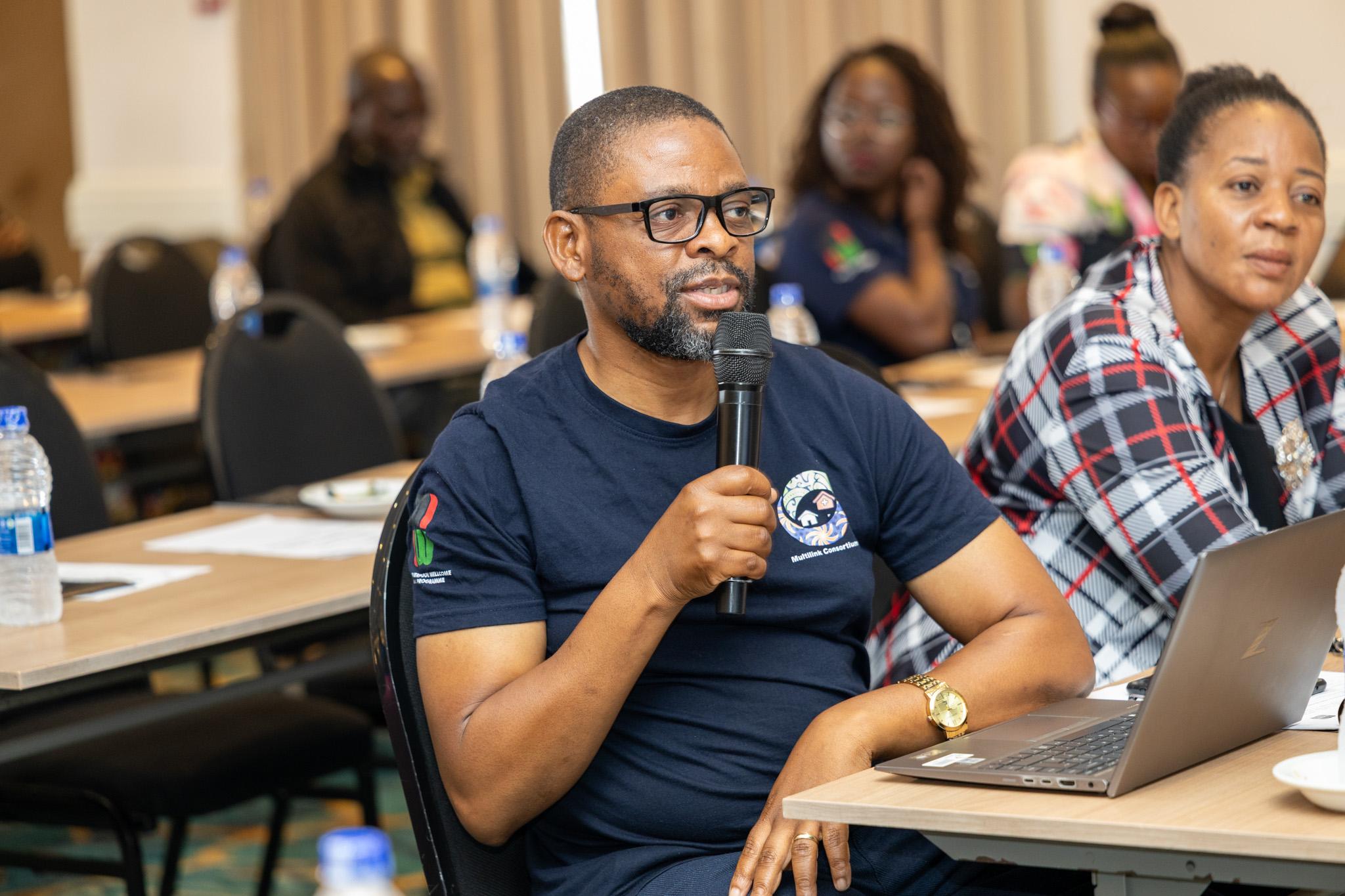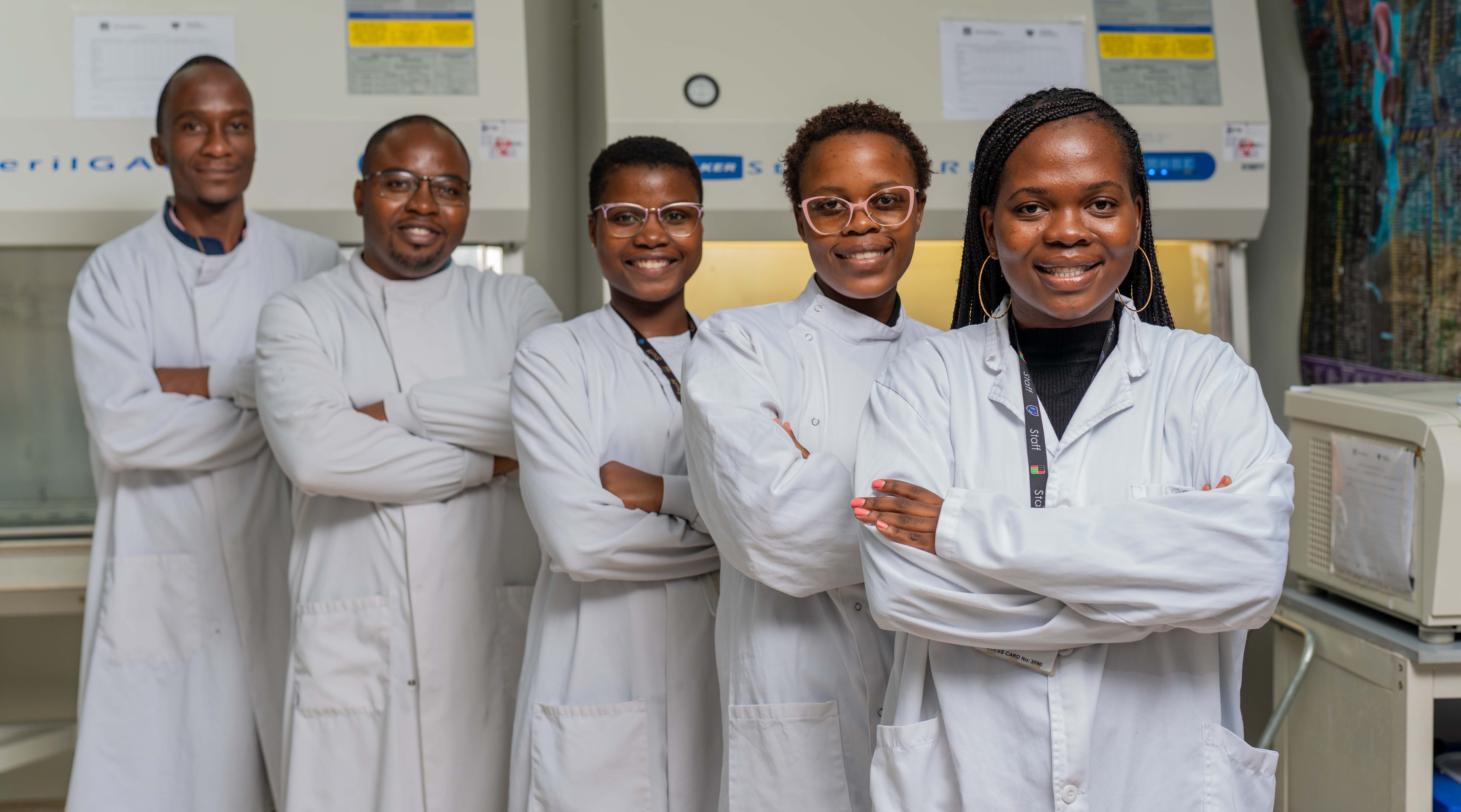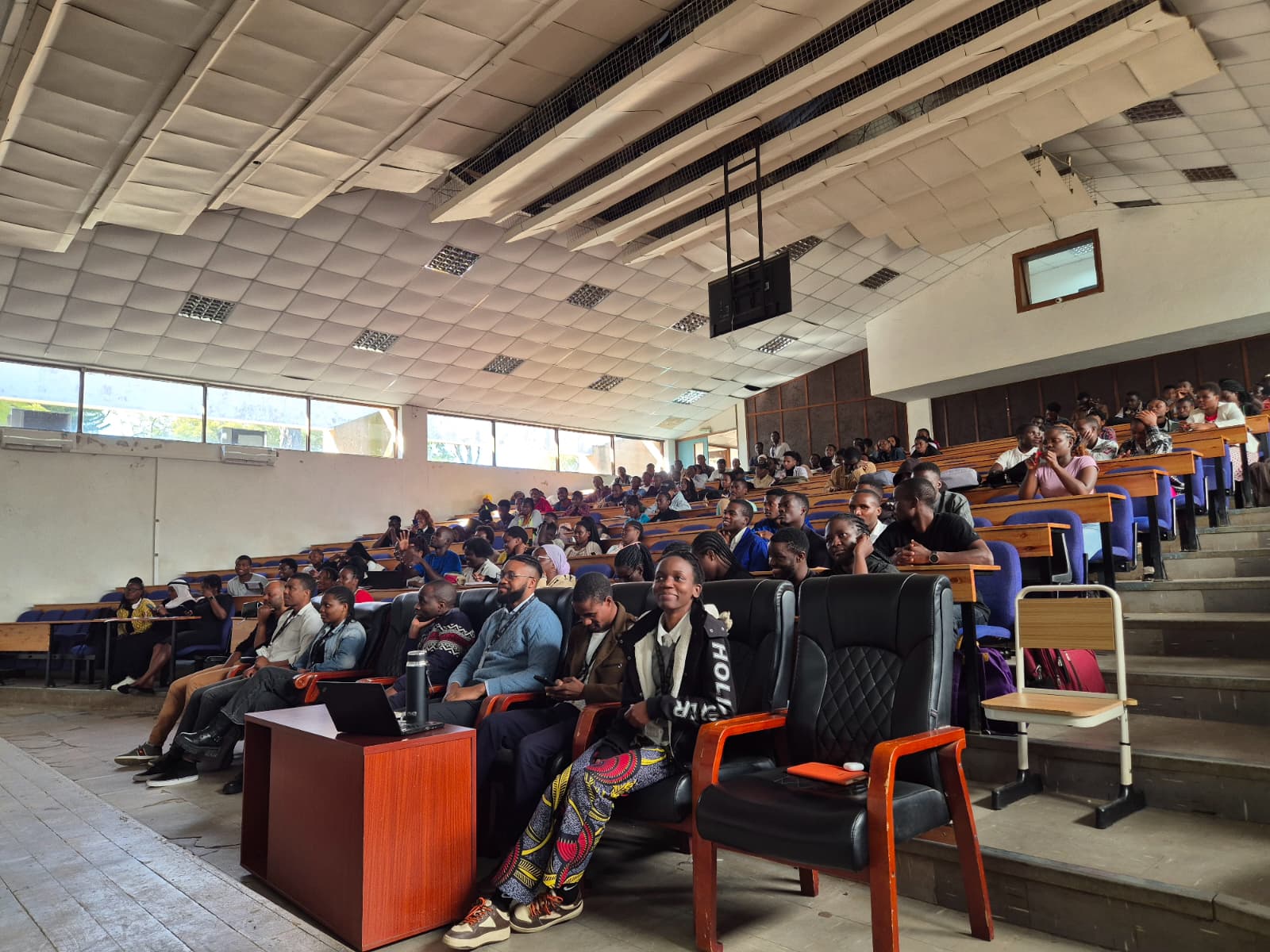Five members of MLW Malaria group (Kamunkhwala Gausi, Latif Ndeketa, Trancizeo Lipenga, Deus Thindwa and Michael Chipeta) attended a six-day intensive course on “working with parasite database resources” from 15th to 20th of October 2017, website: https://coursesandconferences.wellcomegenomecampus.org/events/item.aspx?e=660.
The Wellcome Trust funded training was organised by the Wellcome Genomic Campus (WGC) Advanced Courses and hosted at the College of Medicine. The course was a collaborative effort between the Wellcome Trust Sanger Institute, the Eukaryotic Pathogen Bioinformatics Resource Centre which is a multi-centre collaborative effort including the universities of Georgia and Pennsylvania in the USA, the University of Liverpool in the UK, and the College of Medicine in Malawi.
The workshop brought together 31 scientists from sub-Saharan Africa working on various genomics datasets. The training provided hands on skills in genomic-scale data analysis and visualisation using genomic databases, browsers, comparison tools, data integration tools and sophisticated data mining tools.
The training was facilitated by senior scientists from the collaborating institutes, with training seminars hosted by guest speakers from different African research institutions of excellence who shared their success stories working on genomic datasets, including the tools that were being used for the training. Group exercises helped participants to formulate research questions and address them using the tools and knowledge they had gained during the training.
The team members each applied their diverse backgrounds in parasitology, biostatistics, transmission modelling, vaccinology and epidemiology to the training.
Postdoc biostatistician Michael Chipeta commented: “through this training workshop, I have been introduced to the tools and resources that will enable me to build my bioinformatics knowledge, skills and research, and help me understand the potential for incorporating genomics into some of the geostatistics research we do on determining fine-scale heterogeneity of malaria.”
Vaccinologist Latif Ndeketa remarked: “The development of Bioinformatics tools has previously led to the advancement of recombinant DNA knowledge which is now used to produce safer and more efficacious vaccines. The course was a great opportunity to learn and understand the tools and methods that are used in the genomic-scale data analysis for parasites such as plasmodium falciparum.”
Epidemiologist and mathematical modeller Deus Thindwa observed: “the course equipped me with the open source tools I can use to query genomic databases to identify markers of antimalarial drug resistance in P falciparum samples, and to compare samples from different locations and times. It gave me an understanding of the mechanism of mutations including multi-locus resistance and recombination. I will use this knowledge in my current modelling work of understanding potential impact of intermittent preventive therapy in pregnancy on spread of antimalarial drug resistance.”
Parasitologist Trancizeo acknowledged the benefits of attending the course: “I intend to use the knowledge gained through the course in addition to what I learned during college years to better understand the evolution of artemisinin resistance in the malaria parasite (i.e. Plasmodium falciparum)”



